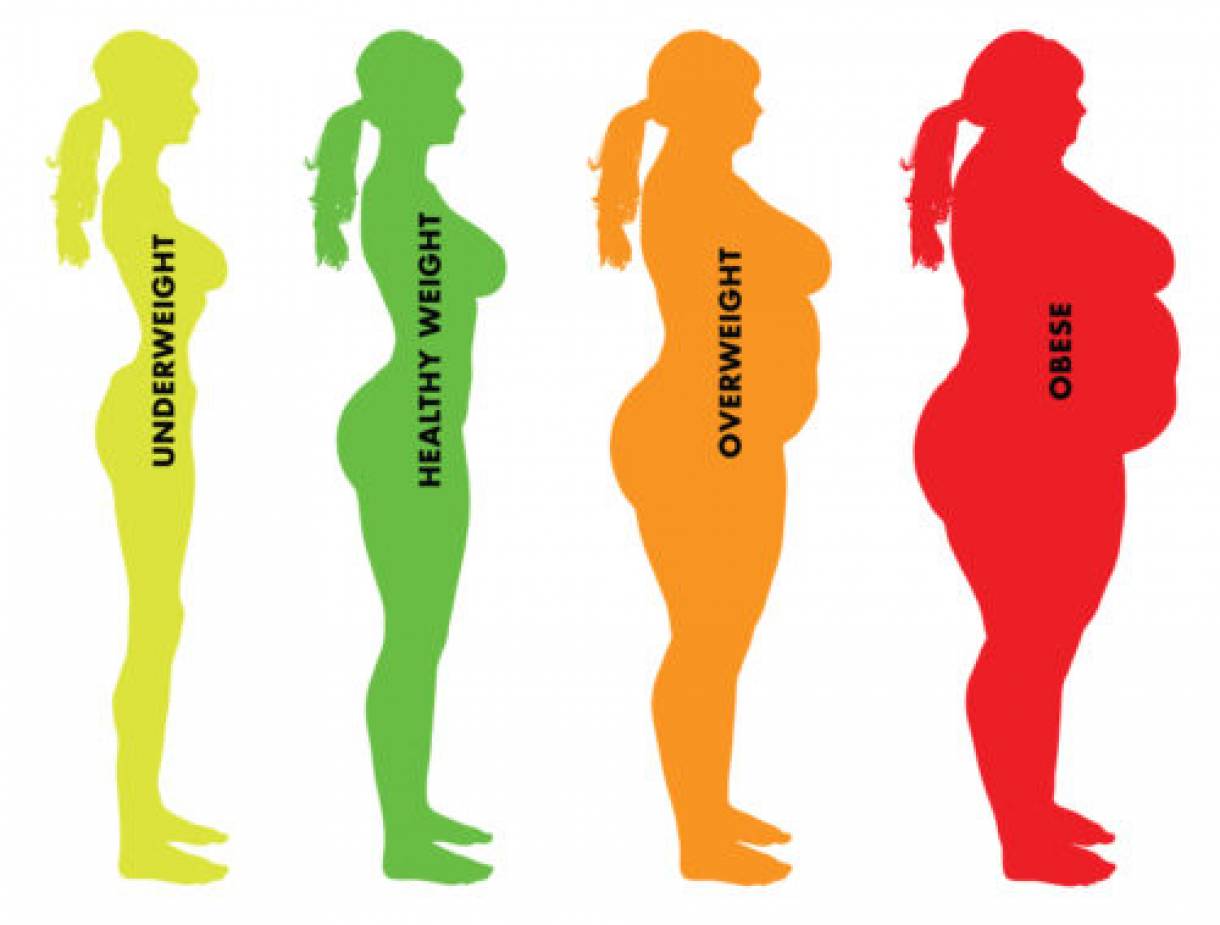Are you curious about what a BMI of 24 means for you as a woman? Understanding your Body Mass Index can be a powerful step toward taking control of your health and fitness.
A BMI of 24 places you in the “normal” weight range, but what does that really mean for your body, energy, and overall wellbeing? You’ll discover how BMI relates to your unique health goals, what factors influence these numbers, and simple ways to use this knowledge to feel your best every day.
Keep reading to unlock insights that can help you make smarter choices for your body and your future.
Bmi Basics For Women
BMI, or Body Mass Index, is a simple tool used to assess body weight. It helps women understand if their weight falls within a healthy range. Knowing your BMI can guide choices about diet and exercise. It is important to learn the basics of BMI for women to use this tool effectively.
BMI provides a quick estimate of body fat based on height and weight. It is widely used by doctors and health experts to check weight status. However, BMI does not measure body fat directly. Understanding how BMI works can help women interpret the results better.
How Bmi Is Calculated
BMI is calculated by dividing weight in kilograms by height in meters squared. The formula is weight (kg) ÷ [height (m)]². For example, a woman weighing 70 kg and 1.7 meters tall has a BMI of 24.2. This calculation is easy and requires only basic measurements.
Bmi Categories Explained
BMI is divided into categories to show weight status. A BMI under 18.5 means underweight. Between 18.5 and 24.9 is normal or healthy weight. A BMI between 25 and 29.9 indicates overweight. A BMI of 30 or higher means obesity. These categories help identify health risks related to weight.
Limitations Of Bmi For Women
BMI does not account for muscle mass, bone density, or fat distribution. Women with high muscle may have a high BMI but low body fat. It also does not consider age, pregnancy, or hormonal changes. BMI is a starting point, not a full health assessment.

Credit: www.researchgate.net
Why Bmi 24 Matters
BMI 24 for a woman marks an important point on the body mass index scale. It indicates a weight that is generally healthy for most adult women. Understanding why BMI 24 matters helps in making better health decisions. It also guides lifestyle choices and fitness goals.
Health Implications Of Bmi 24
A BMI of 24 falls within the normal weight range. This range is linked to lower risks of heart disease and diabetes. Women with BMI 24 often have balanced energy levels. Their bodies tend to function well with less strain on organs. Maintaining this BMI can support long-term health and wellness.
Bmi 24 And Body Composition
BMI 24 does not measure fat and muscle directly. It is a simple calculation based on height and weight. However, at this BMI, many women have a healthy balance of fat and muscle. Body composition varies by lifestyle and genetics. Still, BMI 24 often reflects a fit and active body type.
Bmi 24 Compared To Other Ranges
BMI 24 is near the upper end of the normal range, which is 18.5 to 24.9. Below 18.5 is underweight, which can mean less energy and weaker immunity. Above 24.9 is overweight, increasing risks for some diseases. BMI 24 is a good target for many women aiming for health and fitness.
Age And Bmi Considerations
Understanding how age affects Body Mass Index (BMI) is important for every woman. BMI is a simple number calculated from height and weight. It helps indicate if weight is healthy, too low, or too high. As women age, their body changes. These changes can affect what a healthy BMI looks like. Knowing these shifts helps women maintain better health throughout their lives.
Bmi Changes With Age
BMI does not stay the same over the years. Muscle mass often decreases with age. Fat tissue may increase even if weight stays steady. Bones can also lose density, affecting overall body weight. These changes can make BMI seem higher or lower than it truly reflects. Older women may have a higher BMI but still be healthy. This is why age must be considered when looking at BMI numbers.
Optimal Bmi For Different Age Groups
Young adult women often have a BMI range of 18.5 to 24.9. This range supports good health and lowers risk of illness. For middle-aged women, a slightly higher BMI may be normal due to muscle loss. Older women might find an optimal BMI between 25 and 27. This range can protect against bone loss and other health issues. Adjusting BMI targets by age helps guide better health choices and realistic goals.
Bmi And Menopause Effects
Menopause brings many body changes that impact BMI. Hormone levels drop, affecting fat distribution. Women often gain weight around the belly. This shift can raise BMI without major weight gain. Metabolism slows down, making weight control harder. Tracking BMI during menopause helps spot health risks early. Women can then adjust diet and activity to keep a healthy balance.

Credit: www.sciencedirect.com
Lifestyle Factors Influencing Bmi
Body Mass Index (BMI) is a common way to measure if a woman’s weight is healthy for her height. A BMI of 24 falls within the normal range. Many lifestyle factors influence this number. These include daily habits, diet choices, and physical activity levels. Understanding these factors helps maintain a healthy BMI and overall wellness.
Role Of Exercise
Exercise plays a key role in controlling BMI. Regular physical activity burns calories and builds stamina. It helps keep body weight steady and supports heart health. Simple activities like walking, jogging, or cycling improve fitness. Women who exercise often tend to have a healthier BMI. Consistency matters more than intensity for lasting benefits.
Nutrition And Weight Management
Nutrition affects BMI directly. Eating balanced meals with fruits, vegetables, and lean proteins supports weight control. Avoiding excessive sugar and processed foods helps maintain a steady weight. Portion control prevents overeating and reduces fat accumulation. Drinking enough water also assists in digestion and appetite control. Healthy eating habits create a foundation for a stable BMI.
Impact Of Muscle Mass
Muscle mass influences BMI differently than fat. Muscles weigh more but take up less space than fat. Women with higher muscle mass may have a BMI near 24 but look leaner. Strength training increases muscle and boosts metabolism. More muscle means the body burns calories faster, even at rest. This helps maintain or lower BMI while improving body shape.
Confidence And Body Image
Confidence and body image are deeply connected for many women. Feeling good about your body can boost your self-esteem and overall happiness. A BMI of 24 falls within the healthy range, which can support a positive body image. Understanding this link helps women appreciate their shape and size more fully. Confidence grows when you accept and care for your body.
Link Between Bmi And Self-esteem
BMI affects how women see themselves. A BMI of 24 often means a healthy weight, which can improve self-esteem. Feeling healthy inside and out builds confidence. Society’s standards can cause pressure, but knowing your BMI is healthy helps resist negative thoughts. Self-esteem thrives on realistic body goals and self-acceptance.
Overcoming Body Image Issues
Many women face challenges with body image. Negative thoughts can lower confidence. Overcoming these issues starts with positive self-talk. Focus on what your body can do, not just how it looks. Surround yourself with supportive people who value you beyond appearance. Healthy habits and mindset changes improve body image over time.
Building Confidence At Bmi 24
A BMI of 24 offers a strong foundation for confidence. Celebrate your body’s health and strength. Wear clothes that make you feel good. Practice good posture and smile often. Small daily actions boost your confidence. Remember, confidence shines brightest when you feel comfortable in your own skin.
Health Benefits Of Maintaining Bmi 24
Maintaining a BMI of 24 offers many health benefits for women. This number falls within the normal weight range. It supports overall wellness and reduces health risks.
Keeping a BMI at this level helps the body function better. It improves physical health and mental well-being. The benefits reach various aspects of life.
Reduced Risk Of Chronic Diseases
A BMI of 24 lowers the chance of serious illnesses. Heart disease, diabetes, and high blood pressure become less likely. This weight range supports a healthy metabolism and heart function. Women with this BMI often have better blood sugar levels. It also reduces the strain on joints and bones.
Improved Energy And Vitality
Women with a BMI of 24 usually feel more energetic. The body uses nutrients more efficiently. Daily tasks become easier and less tiring. Physical activities like walking or exercising feel less stressful. This BMI helps maintain stamina throughout the day.
Better Mental Health Outcomes
A healthy BMI also supports mental health. It can lower stress and anxiety levels. Balanced weight often improves self-esteem and body image. Proper nutrition and regular exercise linked to this BMI boost mood. Women tend to experience better sleep and less fatigue.
Practical Tips To Achieve Bmi 24
Achieving a BMI of 24 is a healthy goal for many women. It supports better energy levels and overall wellness. Practical steps make this goal easier to reach. Focus on balanced habits that fit your lifestyle.
Effective Workout Routines
Exercise helps burn calories and build muscle. Aim for at least 150 minutes of moderate activity weekly. Walking, cycling, or swimming are good choices. Include strength training twice a week. It boosts metabolism and tones muscles. Keep workouts varied to stay interested and avoid plateaus.
Balanced Diet Strategies
Eating the right foods controls weight and improves health. Choose whole grains, lean proteins, and fresh vegetables. Limit sugar, processed foods, and high-fat snacks. Drink plenty of water throughout the day. Portion control helps prevent overeating. Plan meals ahead to avoid unhealthy choices.
Tracking Progress And Staying Motivated
Monitor your weight and measurements regularly. Use a journal or app to record changes. Celebrate small victories to keep spirits high. Set realistic, short-term goals for steady progress. Find a workout buddy or support group. Positive feedback helps maintain long-term commitment.
When To Seek Medical Advice
Knowing when to seek medical advice is crucial for women with a BMI of 24. While this BMI falls within the normal range, changes in health or body composition may require professional attention. Early intervention can prevent future complications and support overall well-being.
Listening to your body and understanding warning signs helps you decide when to consult a healthcare provider. Medical advice ensures that your weight and health stay in balance.
Recognizing Health Warning Signs
Watch for sudden weight gain or loss without clear reasons. Persistent fatigue, shortness of breath, or joint pain may signal health issues. Changes in appetite, mood, or sleep patterns also deserve attention. These signs suggest underlying problems needing medical review.
Role Of Healthcare Providers
Doctors and nurses assess your overall health and risks related to BMI. They offer tests to check blood pressure, cholesterol, and blood sugar levels. Healthcare providers explain what your BMI means for your health. They guide you on maintaining a healthy lifestyle suited to your needs.
Customized Weight Management Plans
Medical experts create plans tailored to your body and health goals. These plans include balanced diets, exercise routines, and regular check-ups. Personalized advice helps manage weight effectively and safely. A customized plan supports long-term health and fitness success.

Credit: www.womenfitness.net
Conclusion
A BMI of 24 for a woman usually means a healthy weight. It suggests a good balance between height and weight. Staying active and eating well helps maintain this range. Remember, BMI is just one health measure. Always consider overall lifestyle and personal health factors.
Consult a doctor for advice tailored to you. Keeping track of your BMI supports a healthy life. Simple habits lead to lasting wellness and confidence.

